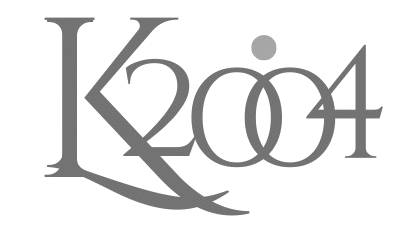Introduction
Language is more than just a means of communication; it’s a reflection of culture, history, and identity. In Mexico, slang—known as “dibu8jos”—plays a pivotal role in everyday conversations, adding color, humor, and depth to interactions. Whether you’re planning a trip to Mexico or simply eager to understand its linguistic nuances, this guide will introduce you to 25 essential Mexican slang terms that will help you connect with locals and immerse yourself in the culture.
Understanding Dibu8jos
Before diving into specific terms, it’s important to grasp what dibu8jos entails. In Mexican Spanish, dibu8jos refers to colloquial expressions and slang words unique to the region. These terms often carry meanings that differ from their literal translations, making them intriguing yet challenging for non-native speakers. Embracing dibu8jos allows for a more authentic and engaging communication experience in Mexico.
Essential Mexican Slang Terms
1. Güey
Meaning: Dude, guy
Usage: Extremely common among friends; can be affectionate or derogatory depending on context.
Example: “¿Qué haces, güey?” (What are you doing, dude?)
Note: Use cautiously; inappropriate in formal settings.
2. Chido
Meaning: Cool, awesome
Usage: Expresses approval or admiration.
Example: “Tu camisa está bien chida.” (Your shirt is cool.)
Note: Universally positive term.
3. ¡No manches!
Meaning: No way, you’re kidding
Usage: Expresses surprise or disbelief.
Example: “¿Sacaste 10 en el examen? ¡No manches!” (You got a 10 on the test? No way!)
Note: Informal; avoid in formal conversations.
4. Neta
Meaning: Truth?
Usage: Emphasizes honesty or seeks confirmation.
Example: “¿Neta, ya te vas?” (Seriously, you’re leaving already?)
Note: Reflects sincerity; widely used.
5. ¡Qué padre!
Meaning: How cool!
Usage: Shows excitement or admiration.
Example: “¡Qué padre está esta película!” (This movie is so cool!)
Note: Positive connotation; suitable in various contexts.
6. Chamba
Meaning: Job, work
Usage: Refers to employment or tasks.
Example: “Encontré una nueva chamba.” (I found a new job.)
Note: Informal term for work.
7. Pedo
Meaning: Drunk, problem, situation (context-dependent)
Usage: Versatile; meaning changes based on context.
Example: “No hay pedo, todo está bien.” (No problem, everything’s fine.)
Note: Context is key; can be vulgar.
8. Aguas
Meaning: Watch out, be careful
Usage: Warns of potential danger.
Example: “¡Aguas con el coche!” (Watch out for the car!)
Note: Commonly used as a cautionary alert.
9. Fresa
Meaning: Snobby, preppy person
Usage: Describes someone with a privileged or entitled attitude.
Example: “Esa chica es muy fresa.” (That girl is really snobby.)
Note: Can be derogatory; context matters.
10. Carnal
Meaning: Bro, close friend
Usage: Casual term for a close male friend.
Example: “¿Qué pasa, carnal?” (What’s up, bro?)
Note: Affectionate; denotes strong friendship.
11. Mero mero
Meaning: The boss, the main person
Usage: Describes someone in charge or the best at something.
Example: “Él es el mero mero del equipo.” (He’s the main guy on the team.)
Note: Highlights authority or excellence.
12. Chale
Meaning: Jeez, bummer
Usage: Expresses disappointment or sympathy.
Example: “¡Chale! Esto me salió mal.” (Shucks! I did this wrong.)
Note: Informal; conveys empathy or regret.
13. Órale
Meaning: Okay, let’s do it, come on
Usage: Expresses agreement or excitement.
Example: “Órale, vamos a tu casa.” (Okay, let’s go to your house.)
Note: Versatile; can also express surprise.
14. Qué onda
Meaning: What’s up?
Usage: Casual greeting among friends.
Example: “¿Qué onda? ¿qué vas a hacer hoy?” (What’s up? What are you going to do today?)
Note: Informal; widely used.
15. Chafa
Meaning: Cheap, shoddy
Usage: Describes something of poor quality.
Example: “Está muy chafa la película.” (This movie is very crappy.)
Note: Negative connotation; avoid using to describe people.
16. Chingón
Meaning: Awesome, impressive
Usage: Compliments someone’s skill or something exceptional.
Example: “Eres un chingón en tu trabajo.” (You’re awesome at your job.)
Note: Strong positive; can be vulgar in some contexts.
17. Naco
Meaning: Uncultured, low-class
Usage: Describes someone perceived as vulgar or lacking sophistication.
Example: “Ese tipo es un naco.” (That guy is uncultured.)
Note: Derogatory; use with caution.
18. Cuate
Meaning: Friend, buddy
Usage: Informal term for a friend.
Example: “Él es mi cuate.” (He’s my buddy.)
Note: Friendly and casual.
19. Vato
Meaning: Dude, guy
Usage: Informal term for a man.
Example: “Ese vato es muy simpático.” (That guy is very nice.)
Note: Common in northern Mexico.
20. Pisto
Meaning: Money
Usage: Slang for cash.
Example: “Necesito más pisto para el viaje.” (I need more money for the trip.)
Note: Informal; regional usage.
21. Chamba de a jato
Meaning: Hard physical labor
Usage: Describes strenuous work.
Example: “Estoy en una chamba de a jato.” (I’m doing hard labor.)
Note: Emphasizes the difficulty of the job.
22. Chiflado
Meaning: Crazy, insane
Usage: Describes someone acting irrationally.
Example: “Estás chiflado si haces eso.” (You’re crazy if you do that.)
Note: Can be playful or serious.
23. Chiquear
Meaning: To drink or sip
Usage: Refers to drinking alcohol.
Example: “Vamos a chiquear unas cervezas.” (Let’s have a few beers.)
Note: Informal; regional usage.
24. Nomas
Meaning: Just, only
Usage: Limits or specifies.
Example: “Nomas quiero un café.” (I just want a coffee.)
Note: Common in everyday speech.
25. Chamba en equipo
Meaning: Teamwork
Usage: Refers to collaborative work.
Example: “La chamba en equipo es esencial.” (Teamwork is essential.)
Note: Highlights the importance of collaboration.
Conclusion
Mastering dibu8jos enriches your understanding of Mexican culture and enhances your ability to communicate effectively with locals. These 25 slang terms offer a glimpse into the vibrant and dynamic nature of the Spanish language as spoken in Mexico. Embrace these expressions, and you’ll find yourself connecting more deeply with the people and the culture.






